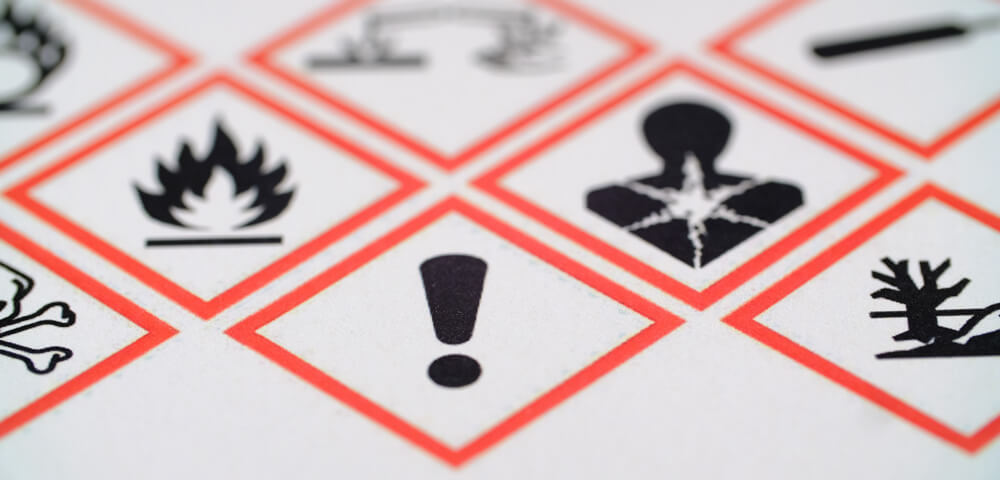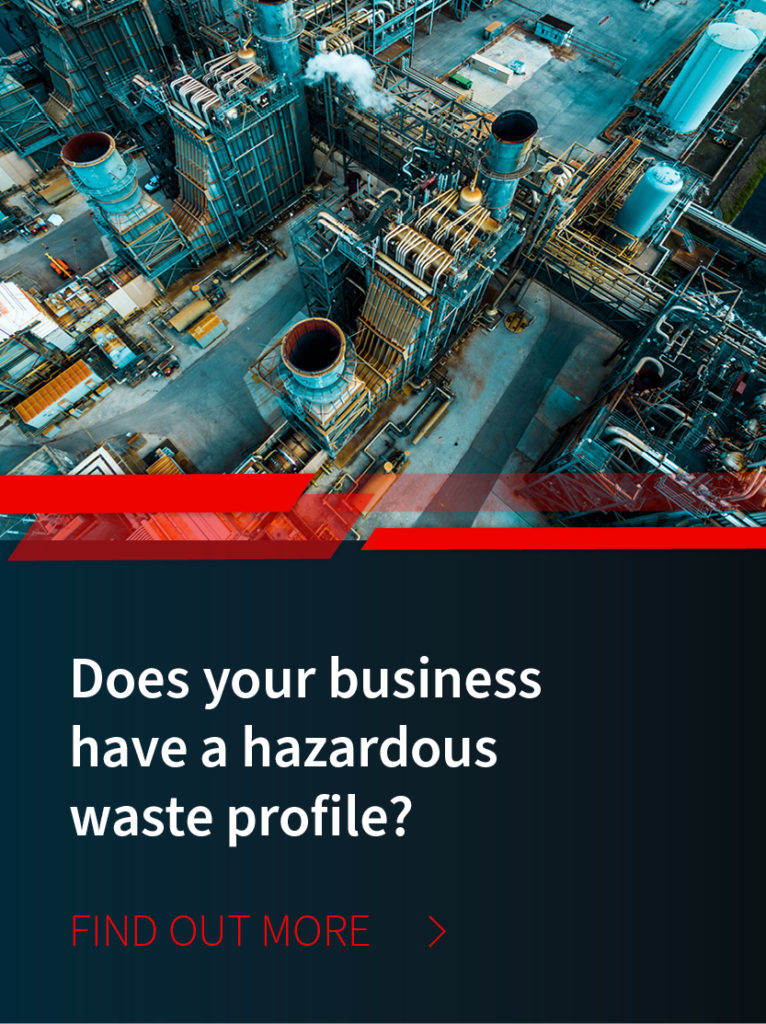
All hazardous waste poses dangers to the environment, animals, and people that come in contact with it, and this waste stream requires special hazardous waste disposal steps. However, there are some less common classes of hazardous waste that are particularly dangerous, and people creating, handling, storing, or disposing of this waste need to be aware of the extra precautions that should be taken to be fully safe and legally compliant. With that in mind, the following are some less common classes of hazardous waste and how to safely dispose of them.
Especially Dangerous Classes of Hazardous Waste and How to Dispose of Them
What Is RCRA Hazardous Waste?
The first important thing to note about even the rarer streams of hazardous waste is that they are all still technically RCRA hazardous waste.
RCRA stands for the Resource Conservation and Recovery Act. This piece of legislation mandated the proper protocol for the identification and disposal of solid waste and hazardous material. These especially dangerous types of hazardous waste do require special precautions, but they still technically fall under this legislative umbrella.
What Is Reactive Waste?
Many of these rarer classes of hazardous material are reactive. That means they are unstable and can undergo chemical changes and subsequent violent reactions when in contact with water or air. These violent reactions can be explosions or the production of dangerous or even lethal gases.
Obviously, these kinds of waste pose incredible safety risks to anyone in contact with them, unless that person is properly prepared and knowledgeable about how to mitigate these inhalation risks, burn risks, and so on.
Select Examples of This Type of Hazardous Waste
5.1 Placard and 5.2 Placard: What Is an Oxidizer?
One such class of waste is any oxidizer, and that's designated with a 5.1 placard. An oxidizer is a material that yields oxygen and, in doing so, increases the combustibility of materials around it.
In the same vein is an organic peroxide oxidizing agent. This is designated with a 5.2 placard.
Class 7 Placard: Radioactive Waste Disposal
Radioactive waste is designated with a class 7 placard. During the disposal process, it's imperative to work with a company that knows these hazardous waste labels and uses them correctly. This helps ensure the safety of everyone involved during transport.
What Extra Precautions Are Necessary with Reactive Materials?
When dealing with hazardous waste materials of this kind, the person performing the hazardous waste removal must be fully enclosed in a hazmat suit. This differs from straightforward flammable material or other characteristic hazardous waste where the person often need only wear a mask for protection.
What to Consider When Selecting Hazardous Waste Removal Companies
When you start looking into your options for a hazardous waste disposal company, remember that not a lot of companies are equipped to properly handle these reactive and especially dangerous kinds of waste.
Be certain, therefore, to do your due diligence when screening these companies. Make sure they have the experience, expertise, and knowledge necessary for disposing of hazardous waste in general and these special classes of hazardous waste specifically.
To be certain, consider the following steps:
- Ascertain the qualifications of anyone who will potentially pack or prepare the shipment of your especially dangerous hazardous waste.
- Ensure the hazardous waste disposal companies know proper transportation protocol. This includes what legally can and cannot go on the truck, essential safety rules (such as never putting an oxidizer next to something corrosive), and so on.
- Determine the hazardous waste management companies have the proper equipment (respirators, masks, gloves, and so on) and the knowledge and experience to know how to use them.
- Ensure the companies have specific experience, knowledge, and training dealing with this kind of hazardous waste treatment.
Cradle to Grave Liability: Another Reason to Be Cautious with Your Hazardous Waste Management
Whatever the particular waste stream you generate, you assume cradle to grave liability. That is, you are responsible and liable for that waste all the way through to proper treatment and disposal. Because you're ultimately legally and financially responsible, it's all the more important to work with reputable and experienced waste management partners.
For example, the company you work with should always provide all the proper paperwork and documentation, including the hazardous waste manifest. This protects you should you ever undergo an audit, but it's also vital if there is an accident involving that waste. The paperwork and truck placards alert first responders and emergency crews how to properly handle cleanup. (For example, if the material is water reactive, fire fighters need to know not to use water.)
Although you're ultimately responsible, you still need to work with a company that's adequately insured. Five million dollars of coverage would be considered above average, while larger companies with hazardous waste facilities might carry ten million.
Make sure the company also takes necessary transport precautions, such as segregating certain types of waste on the truck, using special containers that minimize reactions, and wearing the proper respirators, air masks, or full hazmat suits when mixing or packaging the waste.
For more information about disposing of these particularly dangerous and less common classes of hazardous waste, please feel free to contact a representative of MCF Environmental Services, a Georgia waste management company.








